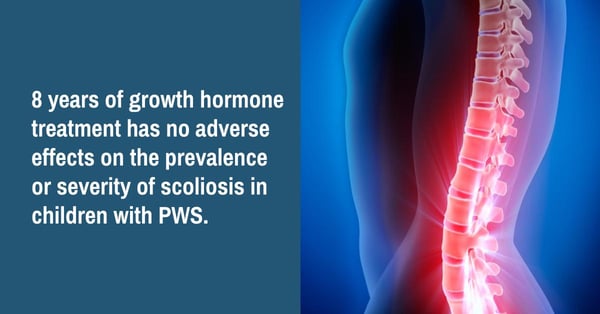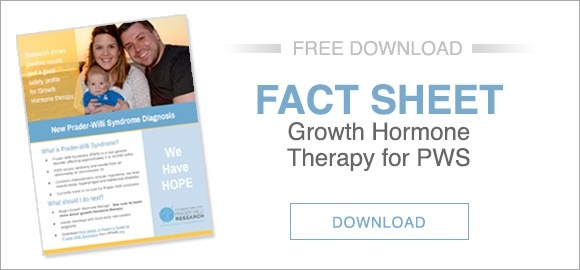A new long-term study on scoliosis and growth hormone has been published. The publication, Effects of 8 Years of Growth Hormone Treatment On Scoliosis In Children With Prader-Willi Syndrome shows that 8 years of growth hormone treatment has no adverse effects on the prevalence or severity of scoliosis in children with PWS.
Scoliosis is frequently seen in children with PWS, and there has been some concern that growth hormone therapy for PWS could increase its risk or progression. To address this concern, a group of researchers looked at the prevalence and severity of scoliosis among children with PWS who have been on growth hormone for 8 years compared to children who have not taken growth hormone.

No significant difference was found in either prevalence or severity of scoliosis between children treated with growth hormone versus untreated with growth hormone. They also found that height and trunk lean body mass were higher in children with growth hormone versus those without growth hormone. Children without scoliosis who were on growth hormone were found to have a higher bone mineral density of the spine, and this was associated with less curve of the spine. This study confirms and extends earlier studies that showed no increased risk of scoliosis in children with PWS who receive growth hormone therapy, and supports continuing growth hormone therapy even if scoliosis develops.








